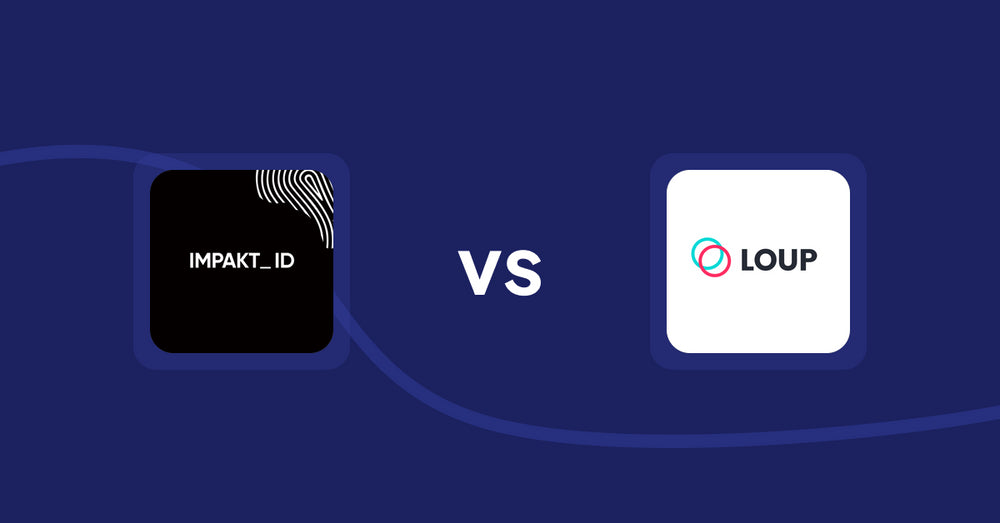Shopify Product Display Apps: ServeUp ‑ Restaurant Menu vs Slidy Testimonial Carousel

Table of Contents
- Introduction
- How Does ServeUp ‑ Restaurant Menu Work?
- How Does Slidy Testimonial Carousel Work?
- How Much Does ServeUp ‑ Restaurant Menu Cost?
- How Much Does Slidy Testimonial Carousel Cost?
- Cost Analysis: ServeUp ‑ Restaurant Menu vs. Slidy Testimonial Carousel
- User Reviews & Customer Support Insights
- Integration and Compatibility Comparison
- Conclusion
Introduction
In the competitive world of online retail, the presentation of products can significantly influence customer behavior and purchasing decisions. Studies suggest that visually appealing product displays can boost engagement by over 80%. This is where product display apps come into play, enhancing the presentation of offerings and improving user experience. Among these tools, ServeUp ‑ Restaurant Menu and Slidy Testimonial Carousel stand out for their unique capabilities, ease of integration, and impact on elevating the overall shopping experience.
ServeUp focuses on providing an elegant and customizable menu specifically designed for restaurants and cafes, transforming standard product listings into an engaging dining experience. In contrast, Slidy Testimonial Carousel allows businesses to showcase genuine customer feedback by creating dynamic carousels of testimonials, leveraging social proof to boost trust and drive sales. Both apps offer distinct solutions, but which one serves your business better? Let's explore them in detail.
How Does ServeUp ‑ Restaurant Menu Work?
ServeUp ‑ Restaurant Menu is designed specifically for food and beverage businesses, offering a variety of customization options to present menus effectively. The app streamlines the process of displaying dishes and drinks, providing a user-friendly interface that encourages navigation and engagement.
The main features of ServeUp include:
-
Two Layout Options: The app provides two layout designs that allow users to choose what best fits their aesthetic and branding. This ensures that the menu aligns seamlessly with the restaurant’s website look and feel.
-
Three Product Card Views: Users can display menu items in three different card styles, offering flexibility in how they showcase their dishes. This can cater to different marketing approaches—showcasing key items prominently, for example.
-
Allergen and Nutritional Facts: ServeUp emphasizes health and safety by allowing businesses to display allergens and nutritional information. This feature is essential for establishments that prioritize transparency and cater to health-conscious customers.
-
Customizable User Interface: The app offers extensive options for UI customization, allowing businesses to adjust colors, fonts, and other design elements to reflect their unique brand identity.
-
Light and Dark Themes: Catering to user preferences, ServeUp supports both light and dark themes, enhancing visibility in different lighting conditions.
-
Top-notch 24/7 Support: Users benefit from constant support, ensuring that any hiccups in the experience are promptly addressed.
Each of these features serves businesses of varying sizes. For startups, having allergen and nutritional data readily displayed can be a strong trust signal. Small to medium-sized businesses can benefit from the customizable UI to stand out in a crowded market, while large enterprises can utilize the menu's sorting capabilities to manage extensive menus effectively.
Imagine a café launching a new seasonal menu. With ServeUp, they can quickly modify their existing layout, add product cards for new dishes, and ensure that allergen information is clear. Such flexibility can significantly influence customer choices and increase sales.
How Does Slidy Testimonial Carousel Work?
Slidy Testimonial Carousel serves to build trust through visual testimonials, showcasing real-world product usage in a compelling format. It simplifies the process of integrating customer feedback into the storefront.
The key features of Slidy include:
-
Unlimited Testimonial Carousels: Users can create countless carousels, enhancing the site’s credibility by showcasing various customer experiences.
-
User-Generated Content (UGC): The ability to display UGC videos and images adds authenticity, as potential customers see real people engaging with the products.
-
Direct Links: Testimonial carousels can easily link to product pages, deepening user engagement and streamlining the path to purchase.
-
Theme Editor Integration: Users can customize their carousel in the theme editor, allowing for easy integration into various sections of the site, be it the homepage or product page.
-
Visionary Showcase: This feature transforms customer reviews into persuasive social proof, which is critical for conversion in e-commerce settings.
Different sizes of businesses can leverage these features. Startups could use testimonials to build initial trust, while small to medium businesses might need robust social proof to boost sales significantly. Large enterprises can utilize it to maintain credibility across vast product lines.
Consider a brand that offers a unique gadget. By implementing Slidy, a series of enthusiastic customer videos praising its effectiveness could be showcased right on the homepage. This visual endorsement can turn casual browsers into buyers, effectively enhancing engagement.
How Much Does ServeUp ‑ Restaurant Menu Cost?
Understanding the cost structure of ServeUp is crucial for businesses looking to enhance their product display. Here's the pricing breakdown:
-
Premium Plan: $9.99/month
- Features: Two layouts, three product card views, allergen and nutritional facts, badge collections, a customizable UI, light and dark themes, and 24/7 support.
- Limitations: No other pricing tiers are available, which means a singular offering for those wanting a restaurant-focused menu display.
- Target Audience: This plan is best suited for small restaurants and cafes looking to present menus in an attractive format without incurring large operational costs.
- Additional Costs: There are no noted additional fees, making it simple for businesses to budget.
It is important to note that you can always reach out to our team and we can create a custom pricing plan to suit your needs and your budget. Schedule a call via this link and we’ll come up with the best solution for you and your business.
How Much Does Slidy Testimonial Carousel Cost?
Cost-effective solutions significantly impact business decisions, especially for customer-focused apps. Slidy's pricing structure is as follows:
-
Free to Install: Allows businesses to use the app at no initial cost for the first 500 views, after which a charge of $2.99/month applies for unlimited views.
- Features: Showcase of testimonials with UGC, unlimited carousels, and integration options.
- Limitations: The trial period of 500 views might be too restricting for businesses with higher traffic, leading to potential costs before a full assessment of the app’s effectiveness.
- Target Audience: Ideal for startups or smaller businesses wanting to test the waters without upfront investment.
- Additional Costs: Smaller businesses need to be mindful of potential monthly fees after exceeding the view limit.
Cost Analysis: ServeUp ‑ Restaurant Menu vs. Slidy Testimonial Carousel
In terms of cost, ServeUp’s clear and straightforward pricing at $9.99 focuses on delivering a robust set of features that directly contribute to enhanced user experience in restaurants. Conversely, Slidy’s freemium model encourages initial exploration but may lead to unexpected costs for high-traffic sites.
When weighing the value proposition, ServeUp seems to offer better cost efficiency for restaurants looking for dedicated menu solutions, supported by extensive customization features that can grow alongside your business.
User Reviews & Customer Support Insights
Is ServeUp ‑ Restaurant Menu Good?
ServeUp boasts an impressive 5-star rating from 64 reviews. Users appreciate its user-friendly interface and robust support services, emphasizing the app's ability to enhance customer engagement with a polished menu layout. It has proven effective since its launch, establishing a reputation for reliability and quality in customer experience.
Is Slidy Testimonial Carousel Good?
Slidy holds a solid average rating of 4.6 stars with 11 reviews. Users have expressed appreciation for its ease of use but may lack the volume of feedback required to fully polarize its effectiveness. The fusion of genuine customer testimonials with UGC showcases a compelling feature set, although some users might find limitations in the free version concerning high site traffic.
Customer support is pivotal in any app rating, and while Slidy does not emphasize its support service, ServeUp’s 24/7 support underlines its commitment to customer satisfaction.
User Preference: ServeUp ‑ Restaurant Menu or Slidy Testimonial Carousel?
Given the average ratings, ServeUp clearly emerges as the favored option among users. The pronounced satisfaction with its extensive customization and supportive infrastructure contributes to its higher rating. Meanwhile, Slidy, while effective, could benefit from more user testimonials to bridge any perceived effectiveness gaps.
Integration and Compatibility Comparison
ServeUp ‑ Restaurant Menu Integrations
Serving a niche market, ServeUp focuses on seamless integration with restaurant themes available on Shopify, ensuring compatibility across various designs and couple it with customizations for menu display.
Slidy Testimonial Carousel Integrations
Slidy integrates with PageFly, which enhances layout customizability, giving businesses the flexibility to better incorporate testimonial carousels into their online presence. However, its reliance on specific integrations may limit broader application compared to ServeUp's targeted niche focus.
Conclusion
Both ServeUp ‑ Restaurant Menu and Slidy Testimonial Carousel offer substantial solutions for businesses striving to enhance their product displays. However, ServeUp stands out with its user-friendly design, comprehensive feature set, and focused pricing model that suits various restaurant needs. With an outstanding 5-star rating since its launch, ServeUp proves to be a superior choice for businesses looking to engage customers through visually appealing and informative menu design. While Slidy has undeniable strengths, particularly in building social trust, ServeUp's specialized features and broad functionality make it the preferable solution for enhancing product displays in the food and beverage industry.
Still Searching for the Perfect Customization Solution?
Stop searching and start thriving with Accentuate Custom Fields! This powerful metafield management app supercharges Shopify’s native features, giving you the tools to create a truly personalized customer experience.
Why Choose Accentuate Custom Fields?
- Advanced Customization: Unlimited field definitions, logical grouping, and custom layouts make your store one-of-a-kind.
- Enhanced Editor Experience: Effortlessly edit variant metafields, use advanced HTML and markdown editors, and sync field definitions between stores.
- Flexible Management: Import/export capabilities, automatic tagging, and comprehensive support for Metaobjects and versioning.
- 24/7 Support: If you have any questions or need assistance, our team is available around the clock to help with any custom modifications to suit your store.
Join over 12,000 merchants, including top Shopify Plus stores, who trust Accentuate for their customization needs. With a stellar 4.9-star rating, Accentuate is the go-to tool for advanced CMS needs, offering unmatched flexibility and control over your store’s content. Elevate your Shopify store with high-quality content that boosts customer experiences and conversions. Tell your story, showcase your products, and create an engaging customer journey with ease.
Experience the Accentuate difference and watch your Shopify store thrive!
Accentuate vs Competition
Explore how Accentuate Custom Fields stands out. Whether you’re aiming to customise your storefront, streamline operations or improve content management, see how we compare against the competition
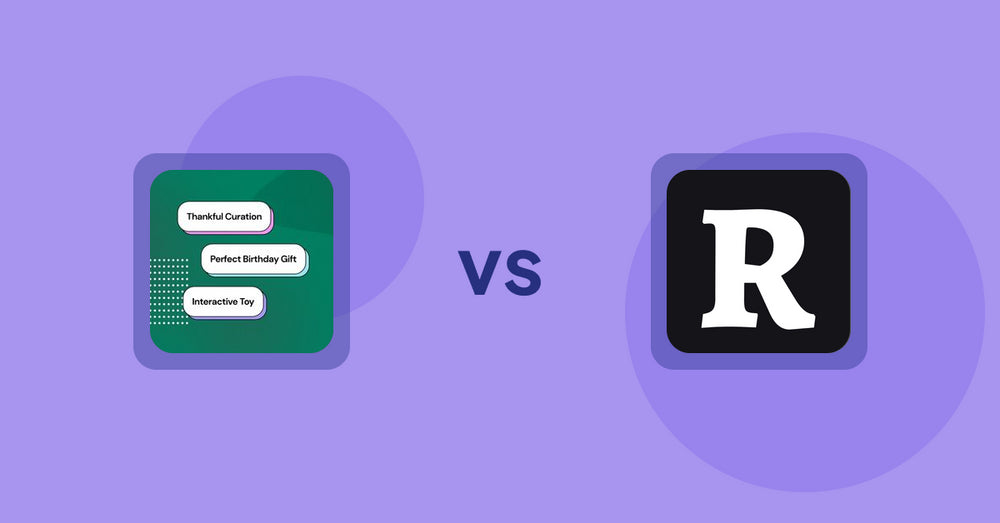
Shopify Product Display Apps: FeatureFrame ‑ Pretty Product vs. AI SEO: Top Product Features

Shopify Product Display Apps: Metadrob: Create Virtual Store vs シンプルクラウドファンディング|お手軽自社クラファン
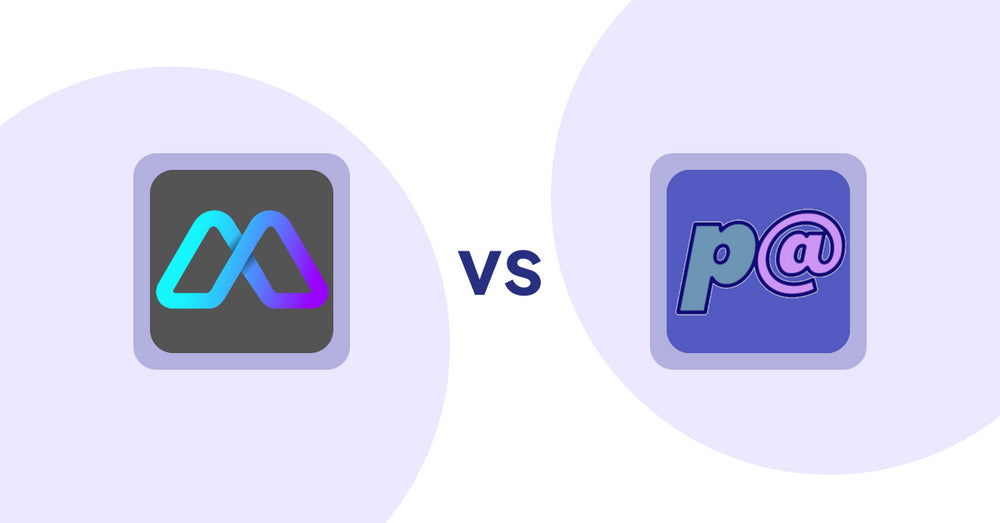
Shopify Product Display Apps: Metadrob: Create Virtual Store vs Parameterizer
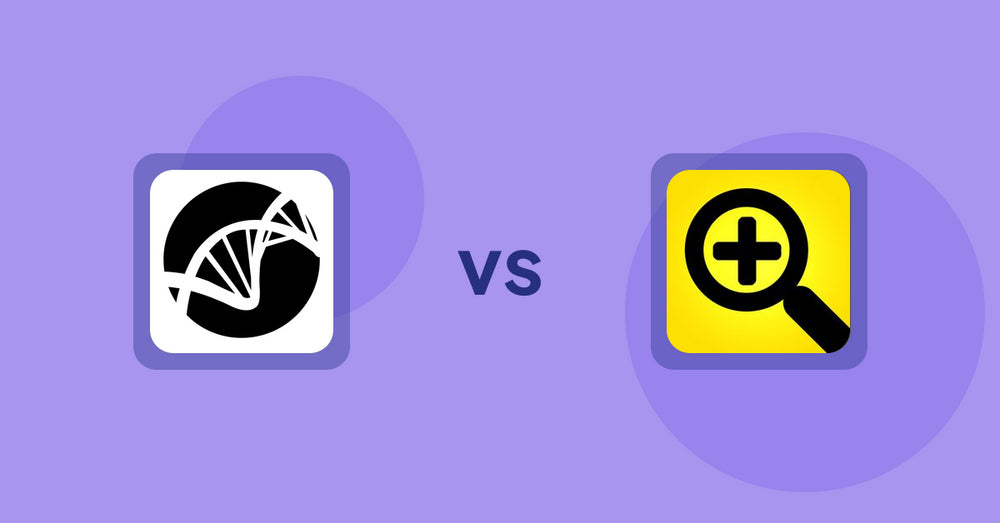
Shopify Product Display Apps: Bike Matrix vs. Fast View: Fastest Quick View
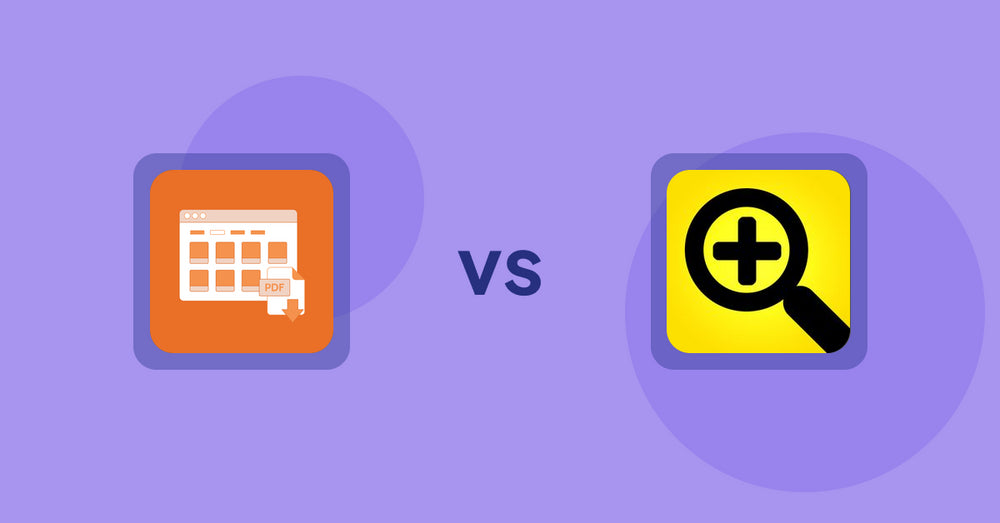
Shopify Product Display Apps: Meetanshi PDF Product Catalog vs Fast View: Fastest Quick View

Shopify Product Display Apps: UR: Smart Ranking vs Sortyfi Collection Merchandise
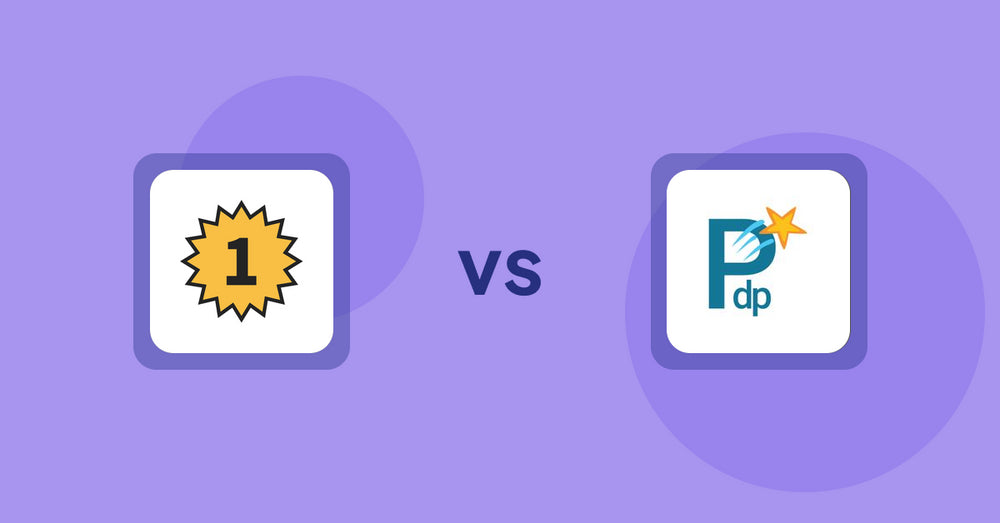
Shopify Product Display Apps: UR: Smart Ranking vs PDP Star

Shopify Product Display Apps: Menulog vs Reelify ‑ Shoppable Reel Video

Shopify Product Display Apps: H3 Estimated Delivery vs Findify Search & Merchandise

Shopify Product Display Apps: Wordo ‑ ChatGPT AI Description vs Urgency! Low Stock Counter
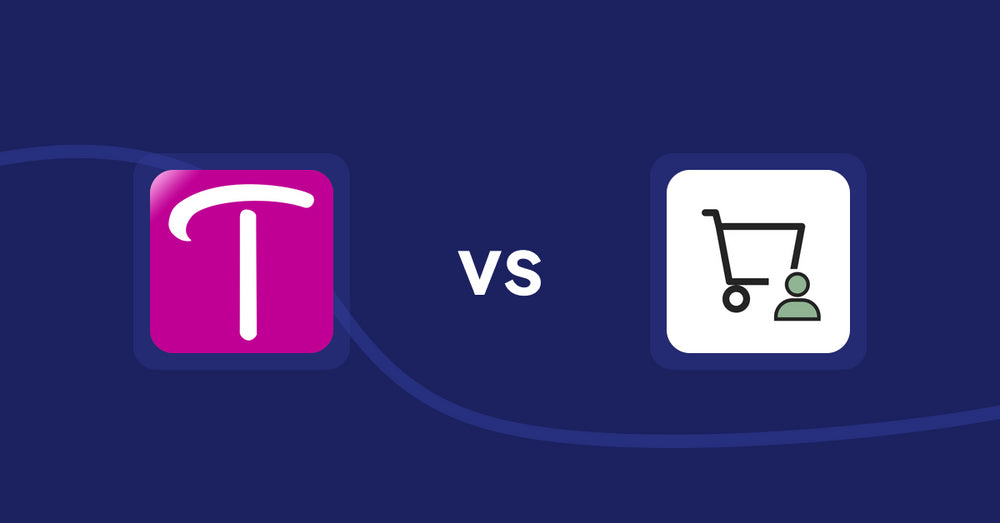
Shopify Product Display Apps: WS Transparency vs シンプル会員注文割引|お手軽ログインセール設定

Shopify Product Display Apps: WS Transparency vs Reelify ‑ Shoppable Reel Video

Shopify Product Display Apps: Awesome Ranking vs シンプル売り切れ非表示|在庫切れ商品の表示変更
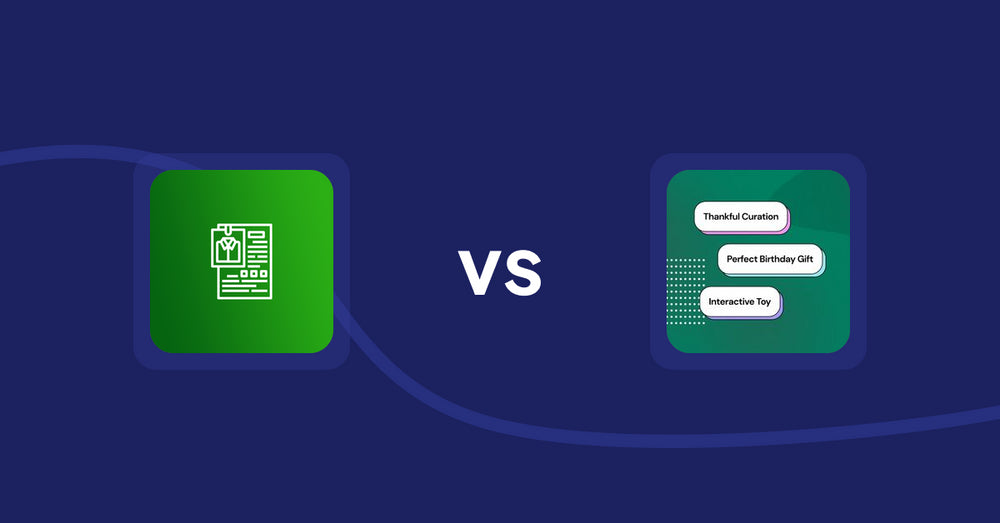
Shopify Product Display Apps: OC Product Size Chart vs FeatureFrame ‑ Pretty Product
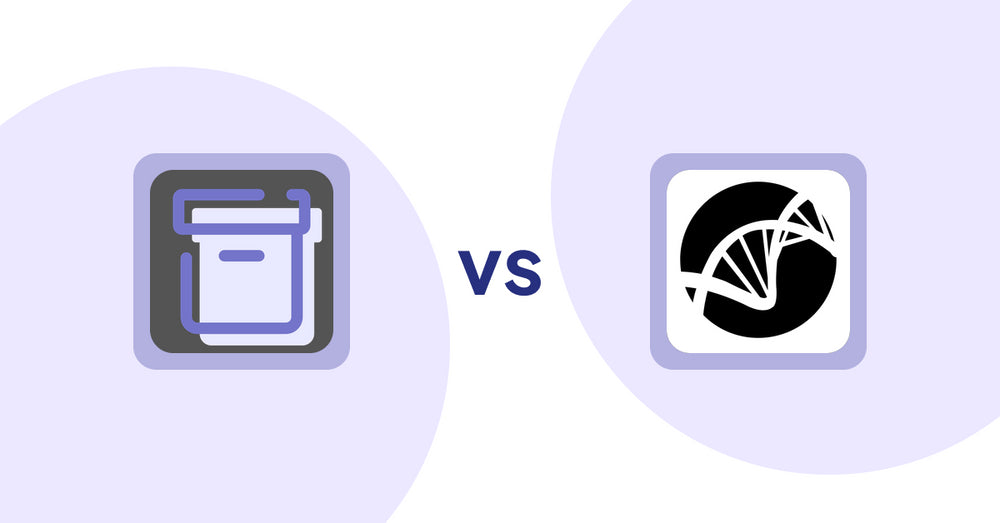
Shopify Product Display Apps: Shelfify vs Bike Matrix
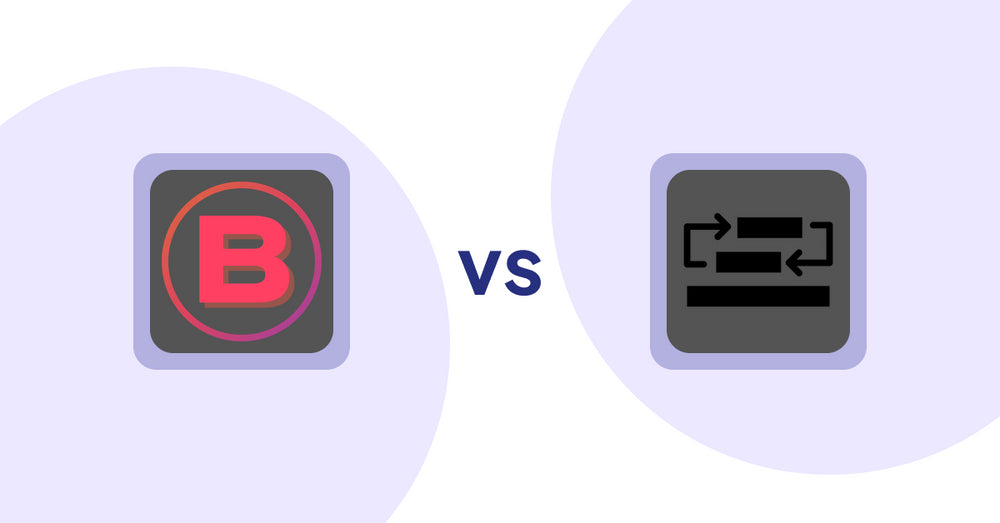
Shopify Product Display Apps: Banter Stories vs Sortyfi Collection Merchandise
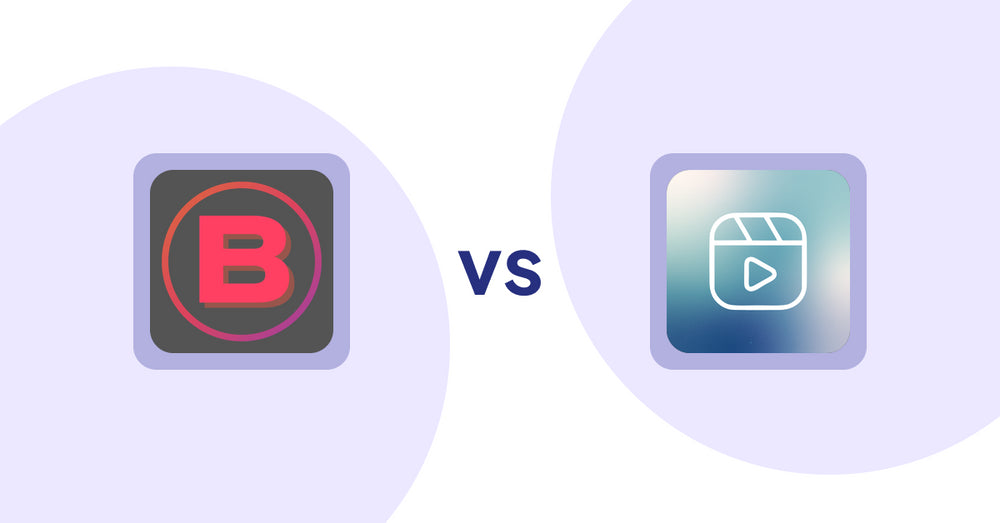
Shopify Product Display Apps: Banter Stories vs. Reelify ‑ Shoppable Reel Video

Shopify Product Display Apps: Wordsmith: Content Generator vs Parameterizer

Shopify Product Display Apps: Wordsmith: Content Generator vs Reelify ‑ Shoppable Reel Video
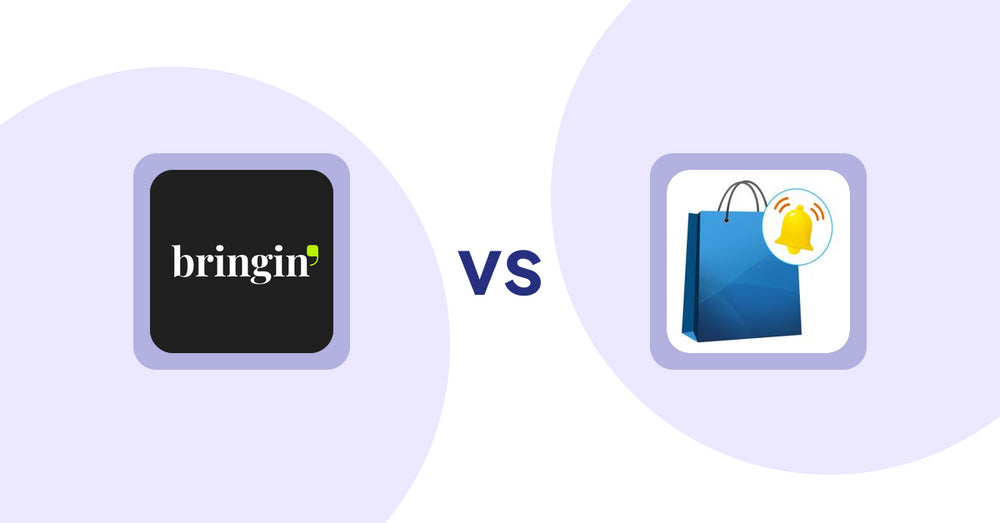
Shopify Product Display Apps: Bringin vs CartBar ‑ Product Purchase Bar

Shopify Product Display Apps: ProductTube vs SMART ‑ Art Product Builder
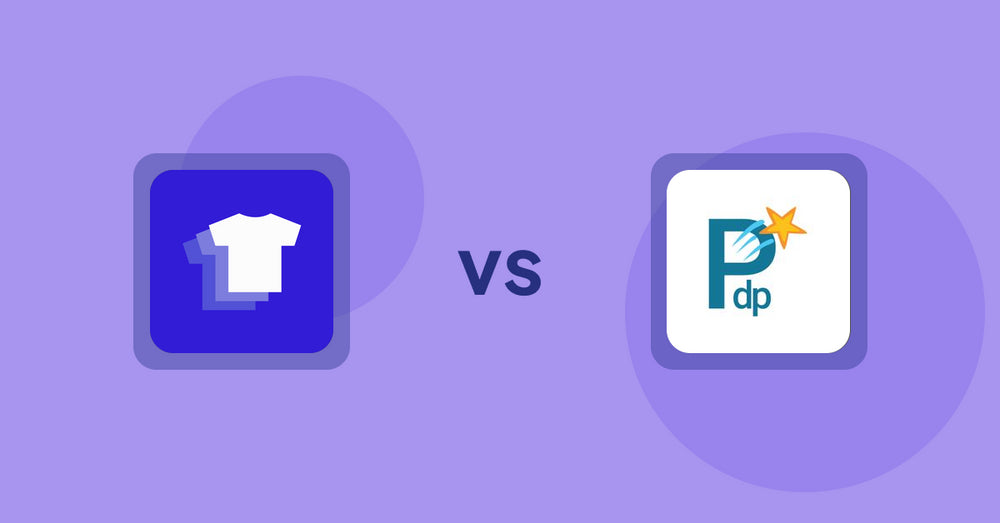
Shopify Product Display Apps: Xpander vs PDP Star
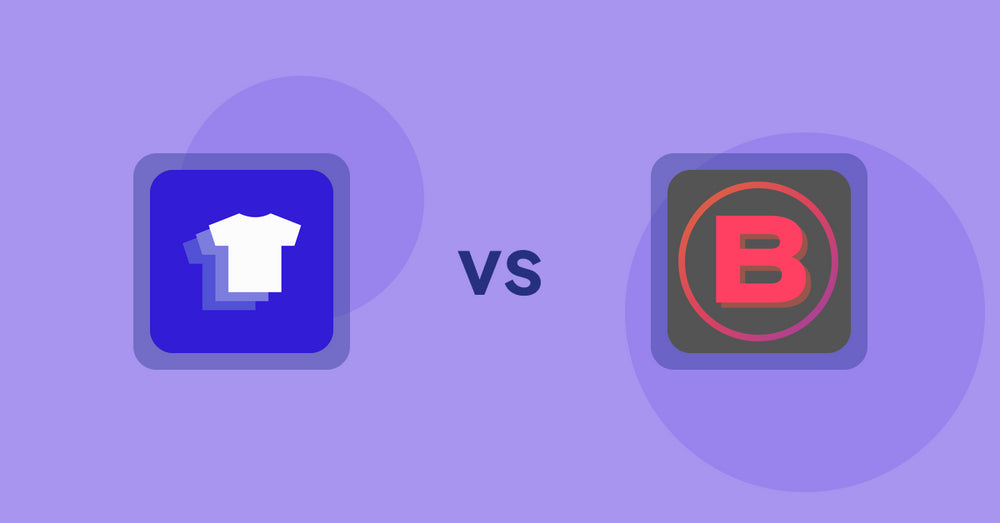
Shopify Product Display Apps: Xpander vs Banter Stories
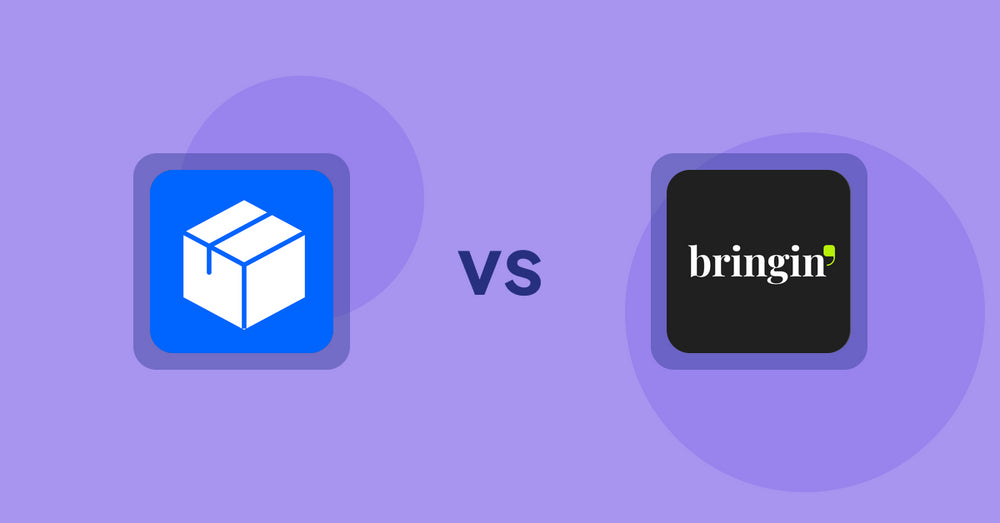
Shopify Product Display Apps: Wonderful Widgets vs Bringin
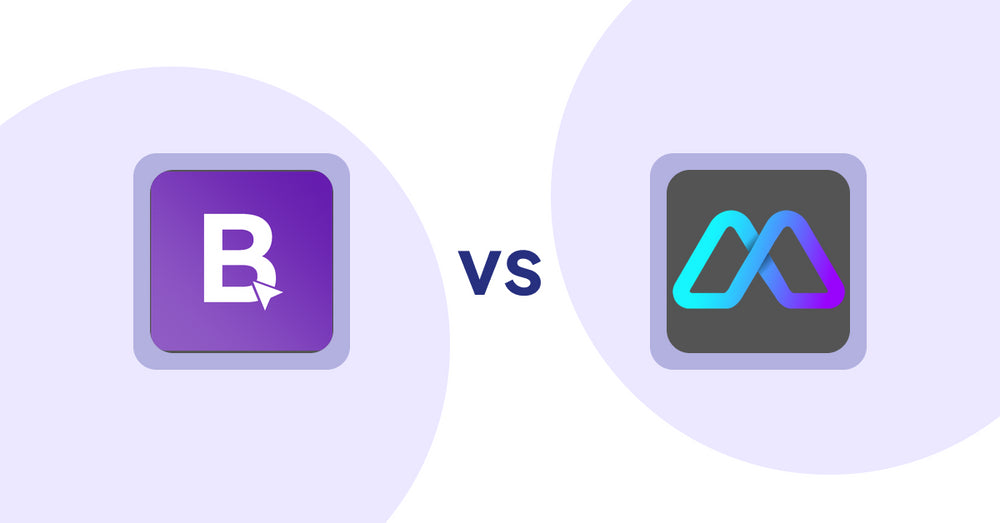
Shopify Product Display Apps: BookE - Rent Property & Service vs Metadrob: Create Virtual Store
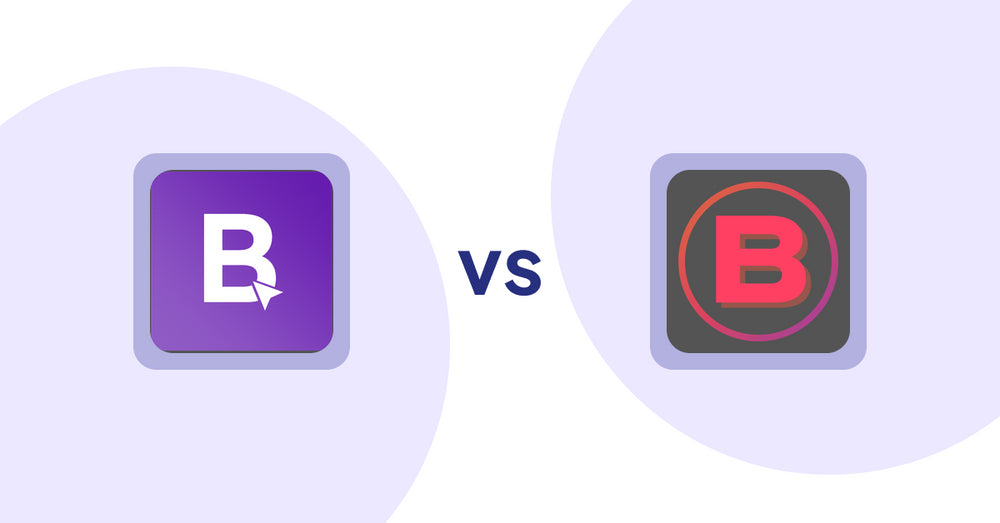
Shopify Product Display Apps: BookE ‑Rent Property & Service vs. Banter Stories

Shopify Product Display Apps: Product Table vs. Xpander

Shopify Product Display Apps: Selling Fast vs CartBar ‑ Product Purchase Bar
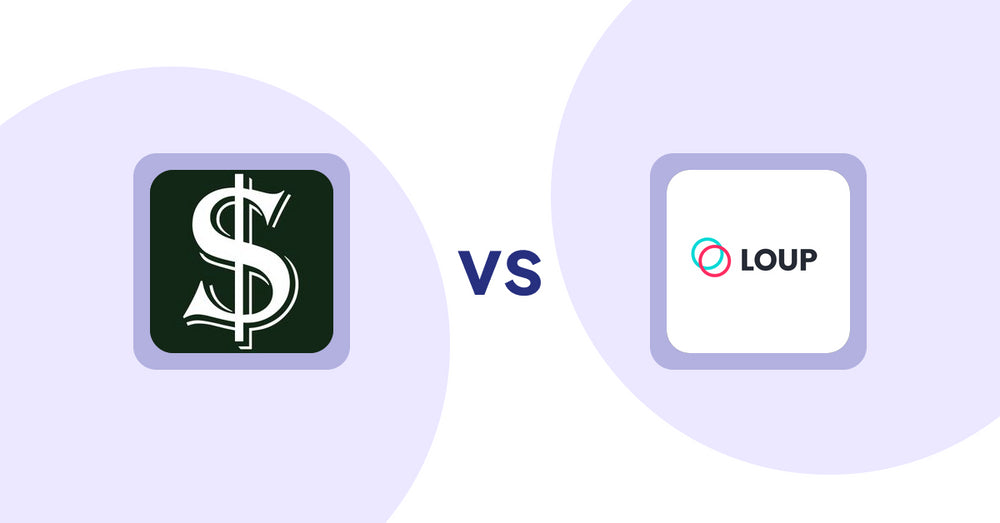
Shopify Product Display Apps: Selling Fast vs. Loup: Sell on Instagram

Shopify Product Display Apps: Selling Fast vs. Findify Search & Merchandise

Shopify Product Display Apps: Selling Fast vs. Aiuta
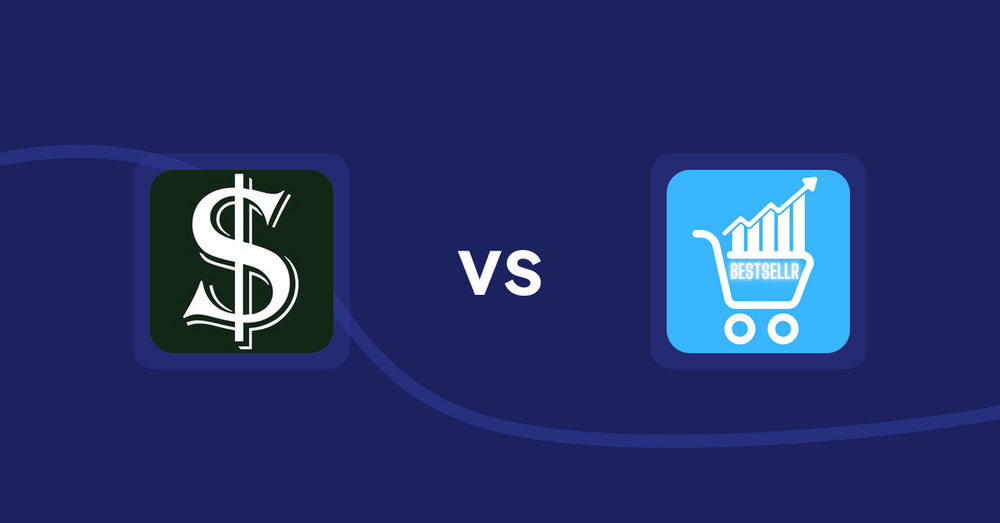
Shopify Product Display Apps: Selling Fast vs Bestsellr

Shopify Product Display Apps: Selling Fast vs ProductTube
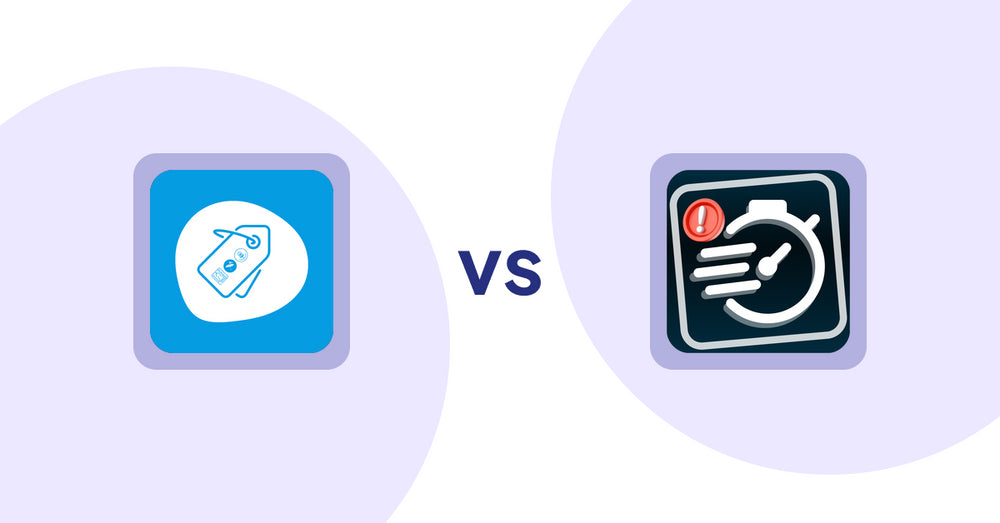
Shopify Product Display Apps: Extendons Product Tag Images vs Urgency! Low Stock Counter

Shopify Product Display Apps: Writer Sofia vs シンプルクラウドファンディング|お手軽自社クラファン

Shopify Product Display Apps: Writer Sofia vs Wordsmith: Content Generator
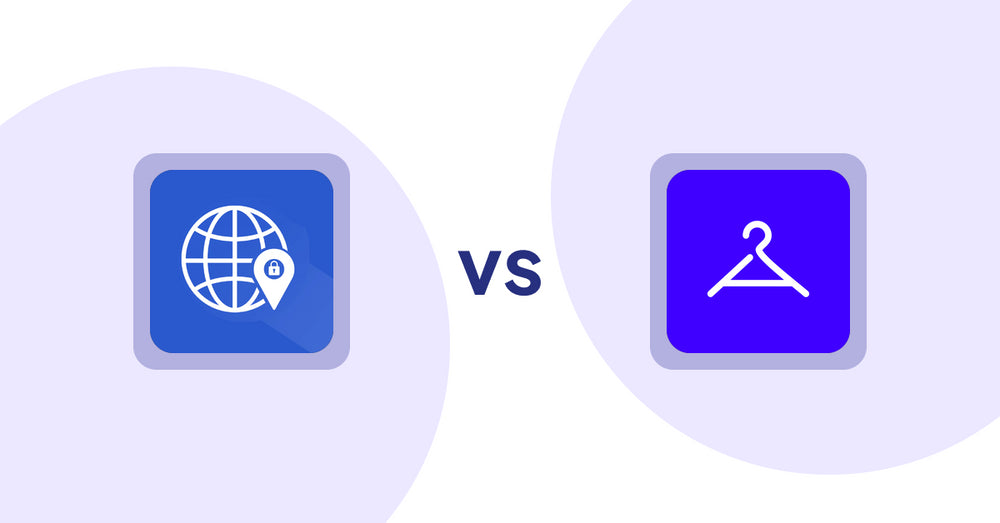
Shopify Product Display Apps: Addify ‑ Country Restrictions vs Aiuta

Shopify Product Display Apps: Spark AI Products Description vs iunfiy • Related Products
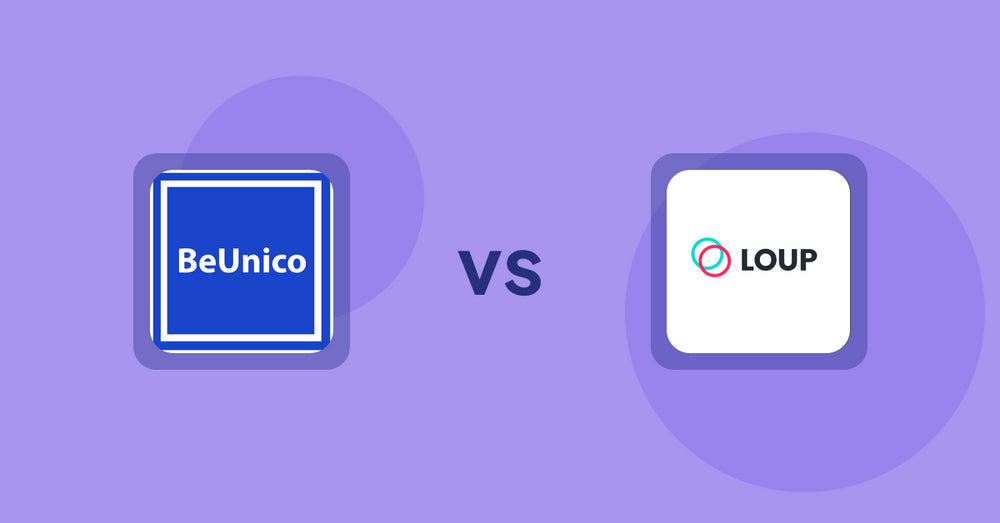
Shopify Product Display Apps: BeUnico vs Loup: Sell on Instagram
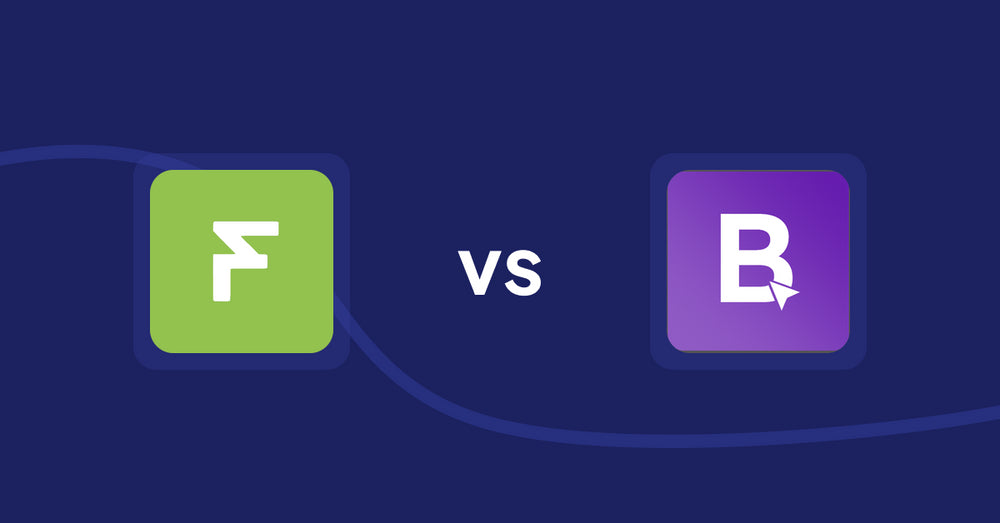
Shopify Product Display Apps: Easy Estimate Shipping vs BookE ‑Rent Property & Service

Shopify Product Display Apps: Easy Estimate Shipping vs. Spark AI Products Description
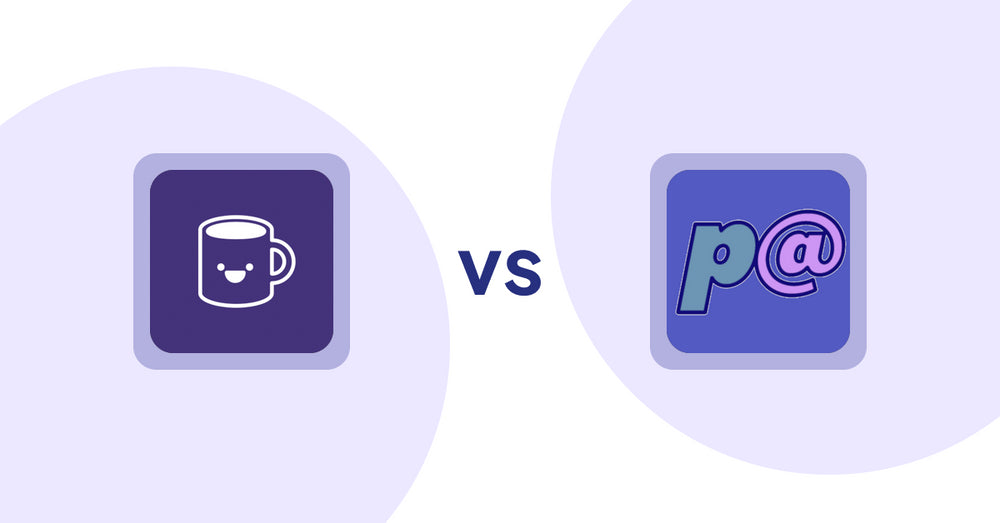
Shopify Product Display Apps: Mugshot Bot vs Parameterizer

Shopify Product Display Apps: Peftrust vs. Wordo ‑ ChatGPT AI Description

Shopify Product Display Apps: Quick Product Navigator Slide vs Reelify ‑ Shoppable Reel Video

Shopify Product Display Apps: Quick Product Navigator Slide vs. UR: Smart Ranking

Shopify Product Display Apps: Eazy Specification Tags Table vs Agile Attachments

Shopify Product Display Apps: Jedi Back In Stock Admin Alert vs FeatureFrame ‑ Pretty Product

Shopify Product Display Apps: Jedi Back In Stock Admin Alert vs. Findify Search & Merchandise
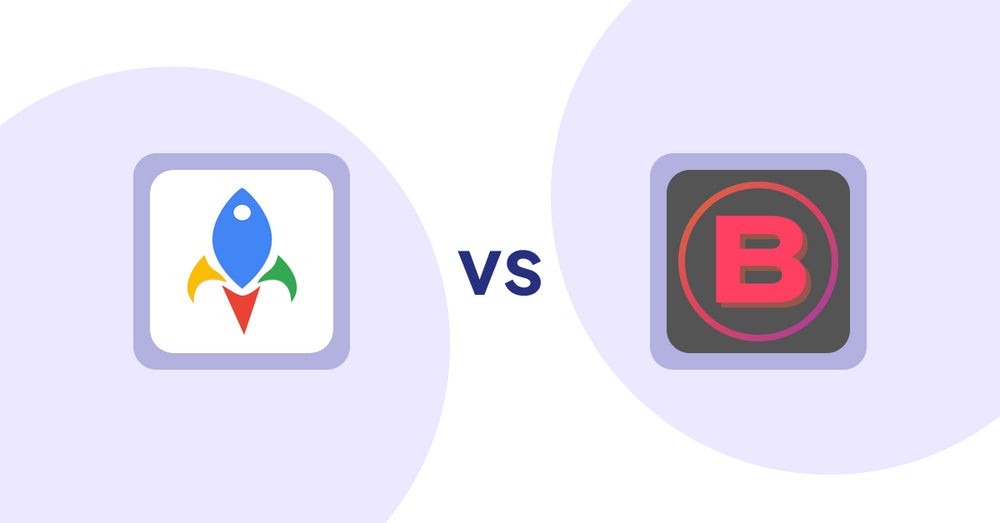
Shopify Product Display Apps: Jedi Back In Stock Admin Alert vs Banter Stories
